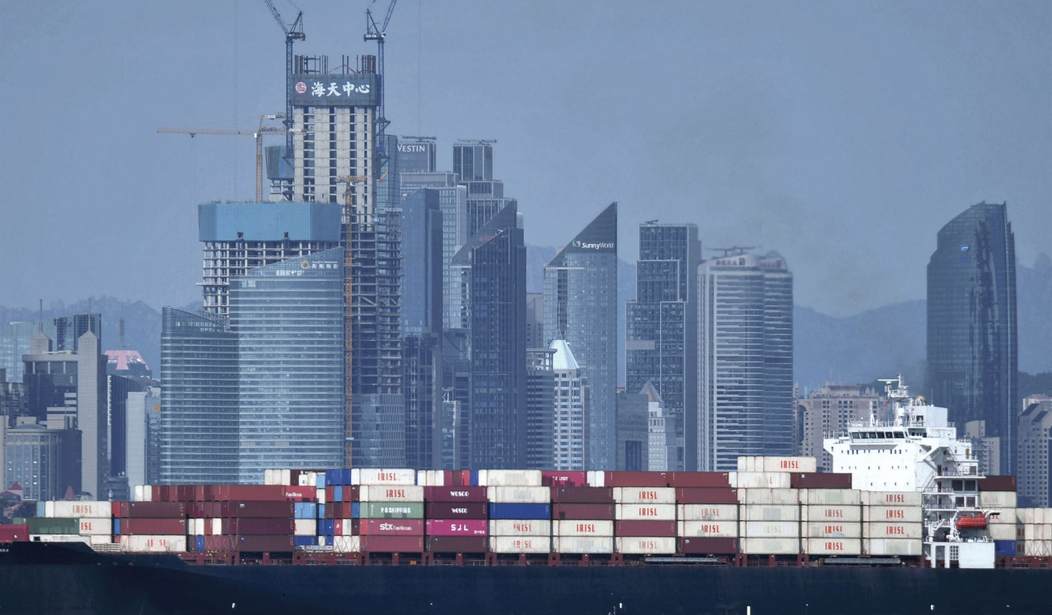The American Chamber of Commerce in Shanghai just released the results of an annual poll and the results were not good. American companies in China are struggling and optimism about the future of the Chinese economy has dropped to a record low.
Out of 306 companies polled, a record-low 66% were profitable in 2023, according to the China business report published by the American Chamber of Commerce in Shanghai.
The report also found that only 47% of respondents were optimistic about their business outlook in China over the next five years, the lowest in the survey’s history of more than two decades...
“It’s a balance between risk and reward,” said Eric Zheng, president of AmCham Shanghai, during a news conference ahead of the report’s publication.
“The perceived risks of doing business in China have gone up in the past few years, but at the same time the market is slowing down, with soft demand and overcapacity,” he said.
About 20% of respondents to the Chamber of Commerce survey said they would be cutting investments in China over the coming year. Some US companies have already started.
Shanghai’s economic-planning agency said last month that the decline in foreign investment in Shanghai was partly because of multinational companies such as suppliers to Apple shifting production capacity out, according to The Paper, a news outlet backed by the Shanghai government. Many Apple suppliers such as electronics assembler Quanta have production bases in the city.
Apple’s emphasis on sourcing from India and Vietnam grew after geopolitical tensions and pandemic-era lockdowns in China.
Apple is thinking ahead to what happens when Xi Jinping eventually launches an invasion of Taiwan, something he has guaranteed will happen if Taiwan refuses to submit to "peaceful reunification." At that point, even assuming war with the US is avoided, US trade with China will probably cease. Apple needs to have a back-up plan in case it happens so it has been moving production and supply chains to Thailand, Vietnam and India.
It's not just US firms. The EU also has a Chamber of Commerce in China and its members are feeling the same way about the risk vs. reward in the country.
“For some European headquarters and shareholders, the risks of investing in China are beginning to outright the returns, a trend that will only intensify if key business concerns are left unaddressed,” Jens Eskelund, president of China’s European Union Chamber of Commerce, said in a message at the beginning of the paper.
The European Chamber’s paper proposes over 1,000 recommendations for China to resolve challenges and problems faced by European businesses operating in the country and boost investor confidence. Among them are calls for China to refrain from punishing companies for the actions of their home governments.
What these foreign companies are seeing is that China is not bouncing back from the pandemic. On the contrary, it will probably not meet its growth goals this year as it supposedly did last year. There are numerous signs the overall economy is in trouble, starting with Chinese stocks. It turns out communism isn't great for business.
A deepening selloff in Chinese stocks is exacerbating a crisis of confidence in the world’s second-largest economy, heaping pressure on policymakers to halt the downward spiral.
A benchmark of the nation’s onshore stocks is approaching its lowest close since January 2019, one in many grim milestones that reflect the depth of the gloom in the $8 trillion market. Down about 7% this year, the CSI 300 Index is staring at an unprecedented fourth annual drop, while an MSCI Inc. gauge of Chinese stocks is heading for its longest stretch of underperformance to global equities since the turn of the century...
The poor performance is in stark contrast to a powerful bull run in global stocks this year, and underscores investors’ skepticism over President Xi Jinping’s vision of China. Increased state control over private businesses, growing trade rifts as China seeks industrial self-sufficiency, and a lack of potent policy steps to rescue the property market are among the fundamental causes that have made the nation’s stocks unpalatable for many.
There's the potential for a deflationary spiral in which declining prices lead to drops in production, revenue and wages.
Deflation stalking China since last year is now showing signs of spiraling, threatening to worsen the outlook for the world’s second-largest economy and raising calls for immediate policy action.
Data released Monday confirmed that apart from food costs, consumer price growth barely registered in large swathes of the economy at a time when incomes are sagging...
“We are definitely in deflation and probably going through the second stage of deflation,” said Robin Xing, chief China economist at Morgan Stanley, citing evidence from wage decreases. “Experience from Japan suggests that the longer deflation drags on, the more stimulus China will eventually need to break the debt-deflation challenge.”
Things are not looking good and at this moment there is no reason to think next year will be better. On the contrary, it could take several years for China to work through the collapse of its property sector.
Beyond the economy itself, I'm interested to see what these means for Xi Jinping and the unspoken agreement with Chinese citizens, i.e. the people tolerate a dictatorial government so long as everyone is getting rich and life is improving. What happens when that's not the case anymore? Does Xi get more paranoid and belligerent, looking for some way to salvage his prestige? Does a democracy movement take hold in China?
We're living in interesting times.
Update: One more sign that capitalism is on the decline in China.
One of the most striking charts this year:
— Alec Stapp (@AlecStapp) September 12, 2024
China’s startup ecosystem has almost completely collapsed in the last 5 years. pic.twitter.com/Ynsf01tWbd








Join the conversation as a VIP Member